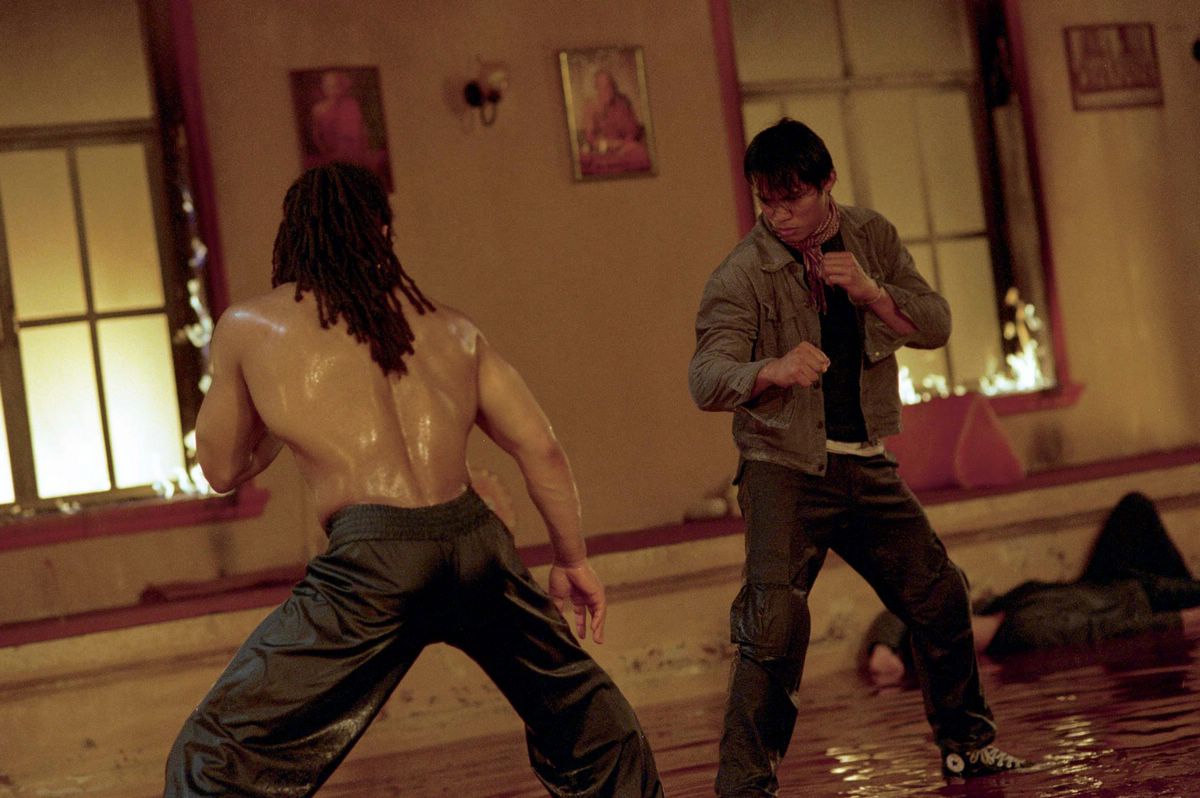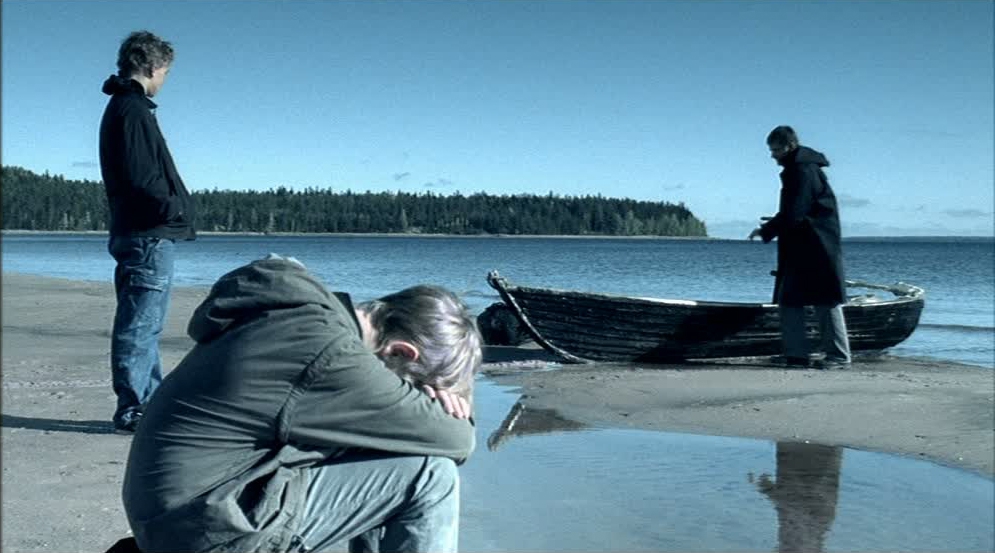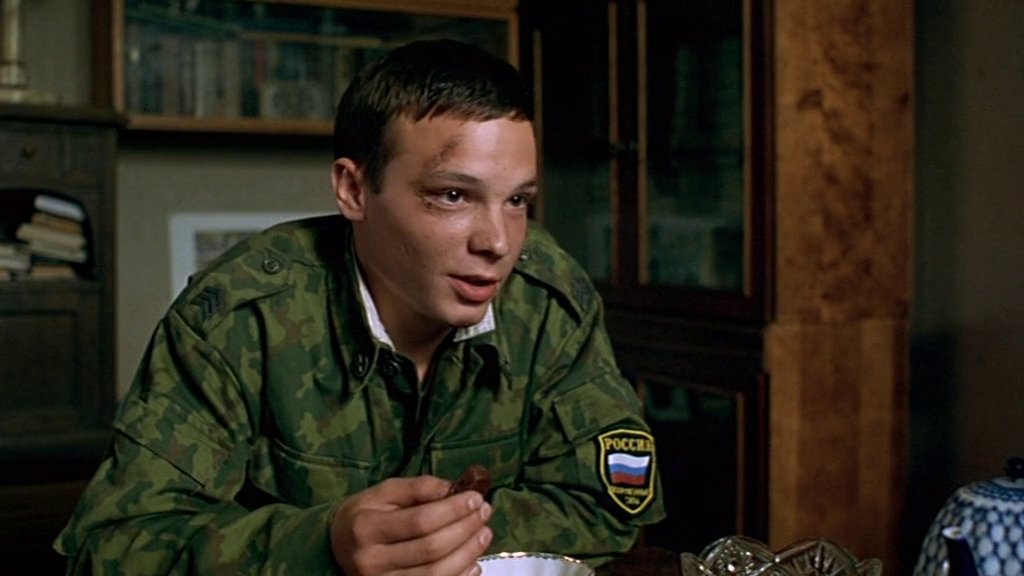Yes, I know we've done a list like this a while ago, but this is a redux of a cringy list I made when I just joined mofo. A friend suggested I redo it to see how my taste has grown and changed, and it seemed like a good idea to me.
To preface the list - I haven't seen every last movie of the 2000s, and those I have seen do indicate that this wasn't the best decade for cinema. The entries on this list won't be the prestige bait you saw on my list of russian films. Expect more blockbuster-type flicks and random movies that I appreciate for one reason or another.
The films are ranked by how strongly I recommend them, with some allowance for personal biases like nostalgia. The movie's historical or cultural context has no bearing on the rankings.
One honourable mention I have to give is to the 2004 Iranian film The Lizard, which has some of the best comedic acting and line delivery I've seen in my life, but the story overall feels like something you have to be iranian to understand. Because of that, it's not really my place to talk about it.

In 2003, a small team in Thailand made an action flick titled Ong Bak: Muay Thai Warrior, which quickly soared to popularity thanks to the amazing stunts and combat performance by its star Tony Jaa.
In 2005, they made the same film, but bigger, and called it Tom Yum Goong.
That's basically what you get, they share the same basic story of a rich gangster stealing a culturally important object from Tony Jaa's village, and him going to town for 2 hours to retrieve it. This one, for all its bigger budget, has higher highs, but also lower lows. The story drags in places, and certain action scenes are poorly executed. That boat chase, especially, suffered from really bad editing.
But the high highs still make the film worth watching, and then some. Tony Jaa was a sight to behold in Ong Bak, from his monkey-like agility and parkour skills, to the fights that actually did feel like fights - physically intense and with serious injury as a constant possibility. (unlike its chinese counterparts, these films made use of feints, more scrappy and underhanded technique, and actual hits with pads hidden underneath the clothing). In Tom Yum Goong, that still applies, but with bigger sets, more mooks to pummel, and more props to play with. It should go without saying that given a better ring/jungle gym, Jaa would preform significantly better. Seeing him beat up 3 guys in a shady underground club is pretty awesome, seeing him fight off 20 guys in a train station while dodging electric railing and people trying to run him over with motorbikes for 7 straight uninterrupted minutes is 10 times as awesome.
Another cool touch is that Jaa starts off overpowered, wiping the floor with all the mooks, but meets his physical match halfway through the film and by the end the whole power dynamic is flipped and he ends up the scrappy underdog, winning by the skin of his teeth against seemingly invincible bosses and squads of human monster trucks.
Overall, it's just a high quality asian martial arts flick.
To preface the list - I haven't seen every last movie of the 2000s, and those I have seen do indicate that this wasn't the best decade for cinema. The entries on this list won't be the prestige bait you saw on my list of russian films. Expect more blockbuster-type flicks and random movies that I appreciate for one reason or another.
The films are ranked by how strongly I recommend them, with some allowance for personal biases like nostalgia. The movie's historical or cultural context has no bearing on the rankings.
One honourable mention I have to give is to the 2004 Iranian film The Lizard, which has some of the best comedic acting and line delivery I've seen in my life, but the story overall feels like something you have to be iranian to understand. Because of that, it's not really my place to talk about it.
#11 - Tom Yum Goong

In 2003, a small team in Thailand made an action flick titled Ong Bak: Muay Thai Warrior, which quickly soared to popularity thanks to the amazing stunts and combat performance by its star Tony Jaa.
In 2005, they made the same film, but bigger, and called it Tom Yum Goong.
That's basically what you get, they share the same basic story of a rich gangster stealing a culturally important object from Tony Jaa's village, and him going to town for 2 hours to retrieve it. This one, for all its bigger budget, has higher highs, but also lower lows. The story drags in places, and certain action scenes are poorly executed. That boat chase, especially, suffered from really bad editing.
But the high highs still make the film worth watching, and then some. Tony Jaa was a sight to behold in Ong Bak, from his monkey-like agility and parkour skills, to the fights that actually did feel like fights - physically intense and with serious injury as a constant possibility. (unlike its chinese counterparts, these films made use of feints, more scrappy and underhanded technique, and actual hits with pads hidden underneath the clothing). In Tom Yum Goong, that still applies, but with bigger sets, more mooks to pummel, and more props to play with. It should go without saying that given a better ring/jungle gym, Jaa would preform significantly better. Seeing him beat up 3 guys in a shady underground club is pretty awesome, seeing him fight off 20 guys in a train station while dodging electric railing and people trying to run him over with motorbikes for 7 straight uninterrupted minutes is 10 times as awesome.
Another cool touch is that Jaa starts off overpowered, wiping the floor with all the mooks, but meets his physical match halfway through the film and by the end the whole power dynamic is flipped and he ends up the scrappy underdog, winning by the skin of his teeth against seemingly invincible bosses and squads of human monster trucks.
Overall, it's just a high quality asian martial arts flick.
__________________
I'm the Yugoslav cinema guy. I dig through garbage. I look for gems.
I'm the Yugoslav cinema guy. I dig through garbage. I look for gems.









